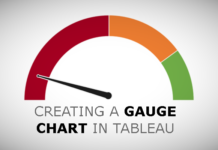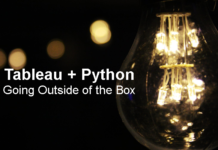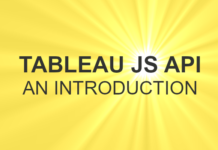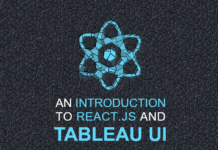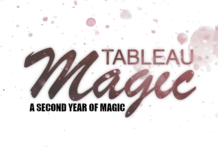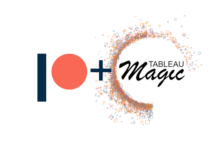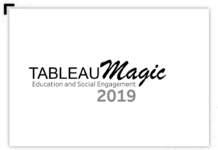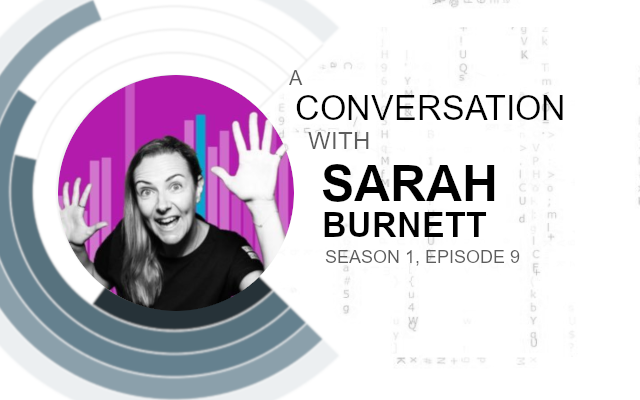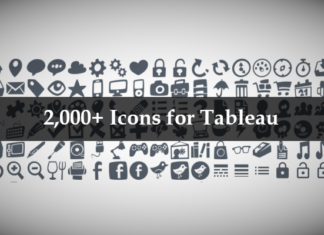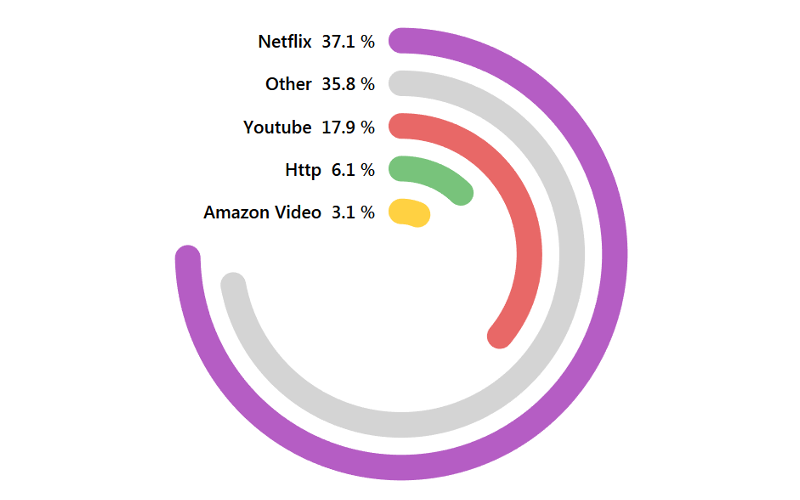Tableau viz & data geek, made in #NZ, living in #SG!
Trying hard to mix it up in the world of banking!
Co-Leader #SGTUG and #TableauAmbassador #TC17 #TC18
Twitter: @sezbee
LinkedIn : https://www.linkedin.com/in/sezbee
Website: https://sezbee.com
Tableau Public: https://public.tableau.com/profile/sarah.burnett#!
Sarah is a kiwi living in Singapore with her young son, she loves to travel how that allows her to experience different cultures. Sarah moved to Singapore 4.5 years ago and enjoys the multi-cultural aspect Singapore has to offer and its proximity to so many amazing countries. Sarah has also lived in London, but as more of a summer person.
I had a chance to have a conversation with Sarah about her experiences in Tableau and her data journey.
Toan: Tell us a little about your background, how did you get into data visualisation and Tableau?
Sarah: I have been in Business Intelligence since it was a buzz word, coming up to 20 years now. About 15 years ago I considered retraining as a graphic designer, I spoke to friends in the industry and attended a course at St Martins College in London. I quickly realised that it was a cutthroat industry and didn’t align with my strength in numbers. So instead I tried to incorporate it into my day job instead. My Tableau journey began 4 years ago, I came from a MicroStrategy background, which is a very traditional BI tool. Tableau was like a breath of fresh air for me, really allowing my creativity to flow.
Toan: For those that do not know much about MicroStrategy, tell us a bit about this platform? How did you use this tool, and what are the three main differences between MicroStrategy and Tableau? Are there places that you would still use MicroStrategy?
Sarah: MicroStrategy is probably one of the oldest are more traditional BI Tools on the market. They were the first to offer a secure mobile BI platform, dating back to the Blackberry powerhouse days. MicroStrategy has a strong semantic layer which allows for the reuse of common objects across dashboards, this is something I still miss in Tableau, although I think it’s coming, as tools like AskData require it.
MicroStrategy also has great bursting technology and is still commonly used for regular repeatable push reporting.
Toan: How did you first hear about Tableau and what was your first impressions? What would you say to people who are working with a traditional BI tools and looking to move to Tableau?
Sarah: I first heard about Tableau about 8 years ago, I was working in New Zealand and a small part of the business was doing a POC on it, I liked how clean the product looked and how quick it was to pick up the basics and really start integrating the data.
No one tool has it all and some will suit the needs more than others. If you are moving away from a traditional tool to Tableau you would need a great data preparation platform as well. Tableau Prep is starting to fill that gap, but again, depending on your needs you may require something with more grunt. Alteryx is a great golden standard tool that tackles data preparation and so much more.
Toan: What is about Tableau that enables you to be creative? Are there specific features that allow for this? What should those with a creative mind be looking into, or trying out?
Sarah: Tableau allows you to build many different visualisations fast, with a couple of clicks you can quickly integrate your data and find answers. The community is huge and helpful, if you see a visualisation that isn’t out of the box there is generally a blog about it and if not you can download the Tableau Workbook from Tableau Public and reverse engineer it or even reach out directly to the person that built it. I have done this in the past and had people reach out to me as well. For those with a creative mind, I suggest finding something that interests you and sourcing some data and trying to build it, it’s a great way to learn.
Toan: Tableau projects come in various shapes and sizes, personally speaking, what has been the most rewarding work (or project) have done in the Tableau space? and why?
Sarah: Last year I did all 52 Makeover Mondays using Tableau. I wanted to challenge myself. Being in management I don’t get hands-on with the tools very often and although I was running teams using Tableau my mindset was still back in the more traditional mindset of MicroStrategy. Getting involved in Makeover Mondays not only took my Tableau skills from Rookie to Rockstar but introduced me to the Data Fam that Tableau is so well known for.
You can see a collection of all 52 of my makeovers here:
And learn more about Makeover Monday here: http://www.makeovermonday.co.uk/
Toan: You did all 52 Makeover Mondays… wow, that is serious dedication, I have to admit that I have been quite bad with participating recently. What is your process for tackling each of these exercises? Do you build what comes to mind, do you explore? Do you try to do something new? What is your creative process?
Sarah: Ha, thanks! Yes, it was a huge commitment and I really had to time box myself. The dataset would come out on a Sunday evening Singapore time, so I would look at the original viz and the dataset that night, I would also stop looking at Twitter, as I didn’t want to be influenced by others, on a Monday evening I would unplug my old MacBook Air and timebox myself with its battery life, about 3 hours, in that time I had to have completed and published to Tableau Public. If I was happy enough, I would also post into Twitter and #MMVizReview so it would be reviewed on the Wednesday. On Tuesday I would look at others and see if I could improve mine, but I would try to spend no more than one-hour refining. Then after the review, I would make any changes suggested, typically spending no more than 30 minutes. When I first started I was still learning the basics so most of my time was taken doing this, as I progressed through the year I would see new things I wanted to try and wait for a dataset that I could use to challenge my skills. Some datasets were easy, and an idea came to me straight away, others were much harder. To be honest, I haven’t built a Makeover Monday this year. Some of my team are participating regularly, so I’ve taken a backseat and give them subjective feedback when they ask for it before they submit.
Toan: A lot of people talk about #MakeoverMonday. Why do you think this has really taken off? What advice would you give to people that are looking to get involved? Just go for it. How do you get the most from this weekly data initiative? How can people with more knowledge give back and help others?
Sarah: Yes, it’s really popular, I think it’s taken off because the idea to rebuild a viz is small and manageable and you can get fast feedback and look at everyone else’s take on it as well. If you’re thinking about getting involved but are too scared, don’t be, there are loads of people submitting for the first time and the feedback is great, from both Eva and the community. But if you are really too scared, you don’t have to submit, maybe do a couple and listen to the reviews, someone else’s feedback could improve your viz as well. You can also tweet out that you’re looking for feedback.
Toan: To add to the above, what was the most challenging project you have experienced in Tableau, and why? How did you overcome this challenge, and what advice would you give to people who experience the same challenge? What would you say to yourself if you had a time machine?
Sarah: I recently submitted for the first Iron Quest, my topic was dark, looking at murder in New Zealand, it took some time to get my head around. I actually shifted my direction, originally, I was going to focus on key murders that I felt had shaped our little corner of the world, but it felt wrong to value one murder over another, so I refocused on the overall story instead. My key learning from building this viz is it’s ok to change your mind a realign the direction.
Toan: It is very interesting to hear that you went from looking at a visualisation to focusing on a story instead. Do you think a lot of people moving from traditional BI to Tableau focus too heavily on the data visualisation aspects? Do you think there is a missed opportunity here to really look into stories? Narratives? Data journeys?
Sarah: Without a story, the data must rely on the reader’s interpretation. You should think that the reader knows nothing about your topic and take them on a journey. There is still a place for business type dashboarding, but the way we are interacting with data is changing and I think a mix of both is starting to be required more and more.
Toan: To follow up on the above, what is your approach to focusing on stories? I bought a screenwriter’s book and did a lot of research into creating screenplays, strange I know. But how do you go about creating stories? What are the tools or methods that you use? What tips can you share with our readers to help?
Sarah: It’s interesting that you mention screenplays, we talk about storyboarding a lot, it’s also important to know who your audience will be and who they could be. I never start with the tool, pen and paper is the better, if you end up throwing it away it’s easier to do. Whiteboarding with stakeholders is also a great approach.
Toan: Tableau is amazing, where do you see Tableau going in the next few years. What features would you love to see, or functionality improved upon? If you were the CEO of Tableau, what would you see as key?
Sarah: Tableau is a great visualisation tool, I hope they stick to their key vision of “Helping people see and understand data”. Some features I’d love to see include: spellcheck (I’m a really bad speller), the ability to template, more copy and pasting functionality, more power with font formatting, cleaner and clearer performance management, auto-sizing the length of grids in dashboards, object search functionality between sheets, multi-select objects to move in dashboards, less technical looking server file structure, oh I could go on and on and on and I’m sure all the Tableau administrators out there would have a completely different list!
If I was the CEO of Tableau my key focus would be continuing to engage the community, I have never seen so many people excited over a tool before, Tableau has truly built something special, that its competitors can only dream of.
Toan: You have a really good list of items there, I never actually thought about it, but yes, why does Tableau not have a spell checker. If you have not done so already, create an idea of the forum and I will definitely upvote it. I am sure a lot of the readers would as well. What do you think people in the Tableau community can do to put their ideas up there and, fingers crossed, get on the roadmap for the Tableau product? What advice would you give?
Sarah: Yes, using the ideas forum is something I need to get across more. We have actually talked about running a session at the Singapore Tableau User Group discussing feature enhancements and collectively adding the idea and voting it up. If you do find one that you’d love to see definitely vote it up and tweet about it, to get others interested in voting to.
Toan: The Tableau community is amazing, it is actually one of the few reasons I try my best and dedicate time to contribute. What are the few things that Tableau could add to the community? How can they support better? Is there something that you have seen from past experiences that Tableau should explore?
Sarah: Tableau does such an amazing job here, from supporting user groups, to Zen Masters, Ambassadors, conferences, Data Day Outs, Tableau Public, Forums, Tableau Doctors the list really goes on and on. I feel well supported here too, I’m not sure I could ask for much more!
Toan: Tableau has an amazing community for learning and there are loads of places to go. What is your top tip for really excelling within Tableau, what is your secret?
Sarah: Get on Twitter and start engaging with the community, don’t be scared to ask for feedback and if you don’t have a Tableau Public profile start building one! My Makeover journey took me from making vizzies like this https://public.tableau.com/profile/sarah.burnett#!/vizhome/MyersBriggs_4/Week43… to this https://public.tableau.com/profile/sarah.burnett#!/vizhome/NBAChicagoBullsSalaryCap/NBAChicagoBulls… and I did it all in less than 4 hours a week.
Toan: That is impressive growth, do you think that is one of the keys aspects to Tableau, you can really progress as fast as you want and there are loads of learning opportunities out there? Away from social media, what else can one do to improve upon their skills? If someone was averse to social media, what would you recommend for them?
Sarah: There are some great online and in classroom courses offered by both Tableau and the community, you might want to consider getting yourself certified as well. Books are another great way to start your journey and of course podcasts. Some books that I have include: Storytelling with Data; Makeover Monday the Book; The Big Book of Dashboards; Observe, Collect, Draw; In Info We Trust. Some podcasts I am listening to include: Storytelling with Data; Data Viz Today; The Tableau Wannabe Podcast; The Super Data Science Podcast; Podcast you Data; Data Able Podcast.
Toan: Lastly, tell us a little something about yourself, not about the Tableau community member, but about yourself, the person. I would love for people to get to know you, so please give us one or two paragraphs about yourself, only as much as you are comfortable sharing? Who are you away from Tableau and your career? What makes up who you are?
Sarah: I enjoy photography and art and getting outside to explore. I’d love to become a keynote speaker, so I say yes to every public speaking opportunity I can and am in awe of the great Ted Talks out there. New Zealand will always be home for me, but right now I love the vibe Singapore has to offer us and of course it’s proximity to the rest of Asia.
Tableau viz & data geek, made in #NZ, living in #SG!
Trying hard to mix it up in the world of banking!
Co-Leader #SGTUG and #TableauAmbassador #TC17 #TC18
A Conversation With Season 1:
- Episode 1 / Mark Bradbourne
- Episode 2 / Josh Tapley
- Episode 3 / Lindsay Betzendahl
- Episode 4 / David Pires
- Episode 5 / Dilyana Bossenz
- Episode 6 / Yukari Nagata
- Episode 7 / Emily Kund
- Episode 8 / Ken Flerlage
- Episode 9 / Sarah Burnett
- Episode 10 / Merlijn Buit

